Search
Search Results

Image
Gallic Wars
This artistic 3D scene shows how fighting between the Roman and the Gauls may have looked during Julius Caesar's campaigns in Gaul (58 to 50 BCE).

Image
Gallic Warriors
An artist's impression of how Gallic warriors may have looked in battle.
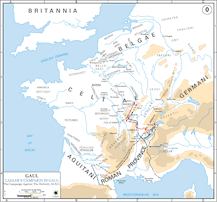
Image
Caesar's Campaign against the Helvetii
A map of Caesar's campaign against the Helvetii in Gaul, 58 BC.

Image
Olive Press Stone
A stone from an olive press used to collect the oil from the pressed olives and pour it into a waiting receptacle. 6th-2nd century BCE, Saint Blaise, France.
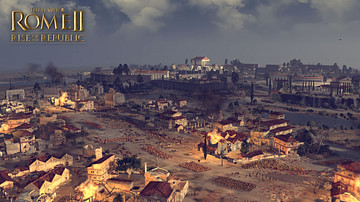
Image
The Sack of Rome, 390 BCE
An artist's impression of what the sack of Rome in 390 BCE by the Gauls may have looked. From the computer game Total War: Rome II - Rise of the Republic by the Creative Assembly.
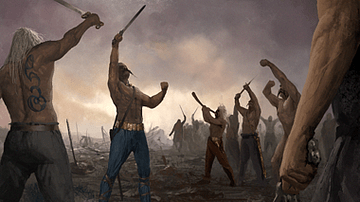
Image
Gallic Victory
An artist's impression of Gallic warriors celebrating victory.
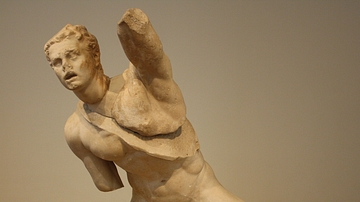
Image
Fighting Gaul
A marble statue of a fighting Gaul. Found in Delos. 100 BCE. (National Archaeological Museum, Athens)
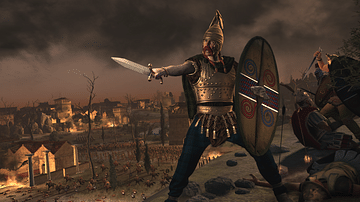
Image
Brennus
An artist's impression of Brennus, the Gallic war chief of the Senones (c. 360 BCE). From the computer game Total War: Rome II - Rise of the Republic by the Creative Assembly.
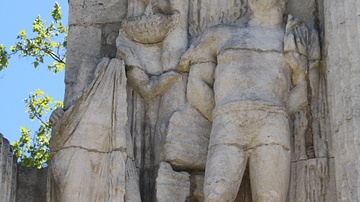
Image
Enslaved Gaul, Arch of Glanum
A detail of the triumphal arch at Glanum, southern France, showing an enslaved Gaul. The monument was built in the early 1st century CE, perhaps to commemorate the city's new status as a Roman colony. The top third is now missing.
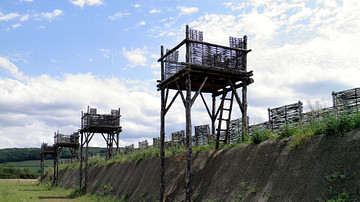
Image
Reconstruction of the Rampart of the Circumvallation, Alesia
Reconstruction of the rampart of the circumvallation at Alesia (France). The rampart consisted of a terrace (agger) surmounted by a parapet and towers. The terrace was built up with packed earth extracted from trenches. It was protected...